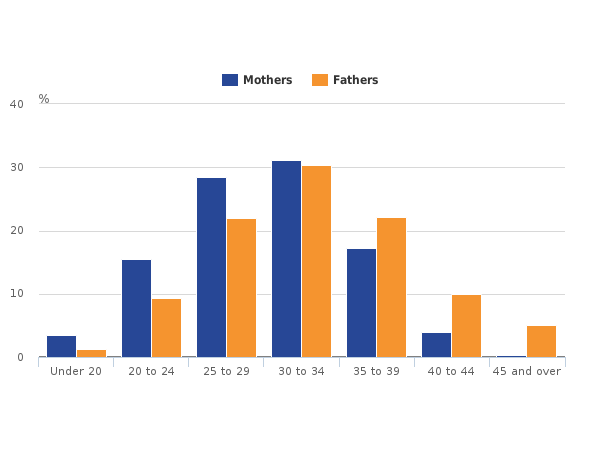Older mothers are better mothers, study suggests
'Psychological maturity' of older mothers beneficial to children’s wellbeing, researchers say

Your support helps us to tell the story
From reproductive rights to climate change to Big Tech, The Independent is on the ground when the story is developing. Whether it's investigating the financials of Elon Musk's pro-Trump PAC or producing our latest documentary, 'The A Word', which shines a light on the American women fighting for reproductive rights, we know how important it is to parse out the facts from the messaging.
At such a critical moment in US history, we need reporters on the ground. Your donation allows us to keep sending journalists to speak to both sides of the story.
The Independent is trusted by Americans across the entire political spectrum. And unlike many other quality news outlets, we choose not to lock Americans out of our reporting and analysis with paywalls. We believe quality journalism should be available to everyone, paid for by those who can afford it.
Your support makes all the difference.Children born to older mothers experience fewer behavioural, social and emotional difficulties, a new study has suggested.
The average age at which people have children in more developed countries like the UK is rising, with women often warned that having children later can increase the risk of complications in pregnancy, including miscarriage.
But the “psychological maturity” of older mothers can have a beneficial effect on children’s wellbeing until their mid-teens, according to researchers at Aarhus University in Denmark.
The study, published in the European Journal of Developmental Psychology, found older mothers do not scold or physically discipline their children as much as those who give birth at a younger age.
Researchers analysed responses from a random sample of 4,741 mothers from a major survey involving children and their families in Denmark.
They found up until adolescence, the children’s grasp of language and social development improved as the age of their mother increased, regardless of factors including background, education and finances.
This was the case among children aged seven and 11, who had fewer social and emotional problems if their mothers were older, but the effect appeared to level off at age 15.
“We know that people become more mentally flexible with age, are more tolerant of other people and thrive better emotionally themselves,” said Professor Dion Sommer, who led the research.
“That's why psychological maturity may explain why older mothers do not scold and physically discipline their children as much.
“This style of parenting can thereby contribute to a positive psychosocial environment which affects the children's upbringing.”
Older mothers with teenagers continued to scold their children verbally less often than younger mothers, but for children aged 15, there was no difference in how often they received physical sanctions depending on their mother’s age.

The average age at which people have children in the UK has been steadily increasing since the 1970s and more than half of births in 2015 were to mothers aged 30 and over.
In 2015, the average age of women having children was 30.3 years old, while fathers were an average of 33.2 years old, according to Office for National Statistics data.
Join our commenting forum
Join thought-provoking conversations, follow other Independent readers and see their replies
Comments